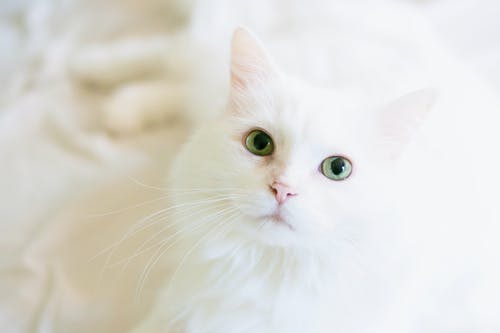
Guidelines for Preserving Your Cat’s Cardiovascular Health
Cats are masters of camouflage when it comes to pain and disease. They work diligently to conceal their weakness, discomfort, and illness. This is especially true about feline heart disease. Unfortunately, heart disease cannot be prevented, but other measures can be taken to maintain your pet’s heart health. Here are some suggestions for keeping your cat’s heart in the best possible health.
Routine Checkups
To combat degenerative heart disease, it is essential to visit the veterinarian. At least once a year, take your kitty pal to the veterinarian for a checkup. The veterinarian will conduct a stethoscope examination on the heart of your pet. A professional vet in Matthews, NC, will possess the knowledge and equipment required to assess whether or not your cat has a heart issue.
Blood Test
Fortunately, veterinary medicine has developed a blood test to get more information on cats predisposed to heart issues. A proBNP test measures the number of peptide hormones (protein hormones released by the heart) present in the body. If a peptide is identified, the veterinarian knows the heart is overworked. If quick action is not taken to alleviate these symptoms, the concentration of peptides will continue to rise.
Exercise and Diet
Diet is crucial in ensuring your cat’s general heart health and preventing major cardiac problems that could lead to cat or dog surgery because this also applies to dogs. A heart-healthy diet consists of high-protein, low-sodium catfood, which decreases fluid accumulation and enables your cat’s heart to pump more efficiently. In addition, older cats may have a harder time gaining or shedding weight. Therefore their diets are adjusted accordingly.
As a feline owner, you may find it more challenging to exercise regularly for heart health. Cats with cardiac disorders lose their capacity for physical activity. And, in contrast to dogs, who are nearly always exercised, it may be difficult to discern when your cat no longer desires exercise. A few minutes of daily activity, such as chasing a toy or climbing on a scratching post, will go a long way toward preventing heart problems.
Adequate Rest
Check that your cat is resting properly and is comfortable in his bed, especially if he is an elderly cat. Ensure he has a place to relax in peace, nice blankets, and easy access to food and drink. In addition, if you have an elderly cat, you might consider obtaining an orthopedic bed with heat and/or a vibrating massage mechanism to alleviate pain and improve circulation.
Cat Supplements
Vitamins for cats could be one of the most promising methods for maintaining the cardiovascular health of your cat. Protein, essential amino acids, fatty acids, calcium, phosphorus, potassium, magnesium, iron, copper, cobalt, zinc, sulfur, sodium selenium, nitrogen, and other components are included. Protein, amino acids, fatty acids, and selenium are especially important for safeguarding our blood cells, heart, liver, and lungs and inducing an elevated antibody response to infection.
Conclusion
Due to their wild ancestry, cats fear showing weakness out of fear of being devoured by a predator. This behavior may be challenging for cat parents, especially if their kitten is timid. To identify your cat’s cardiac problems, a physical examination is necessary. A veterinarian can evaluate your cat’s heartbeat and lung fluid for abnormalities. Your veterinarian will likely direct you to a veterinary cardiologist if he or she suspects your pet has a heart condition. A cardiologist with board certification can perform more advanced diagnostic tests to establish the presence of heart disease symptoms.

